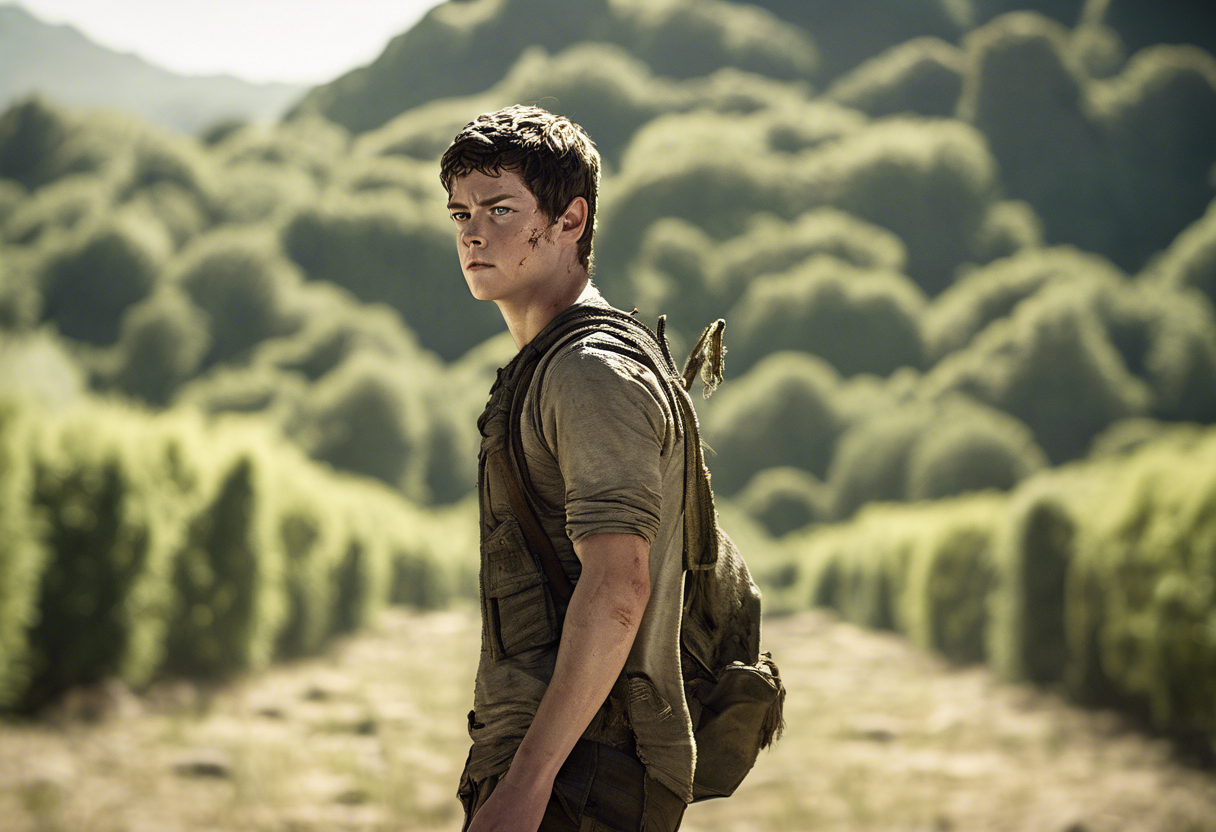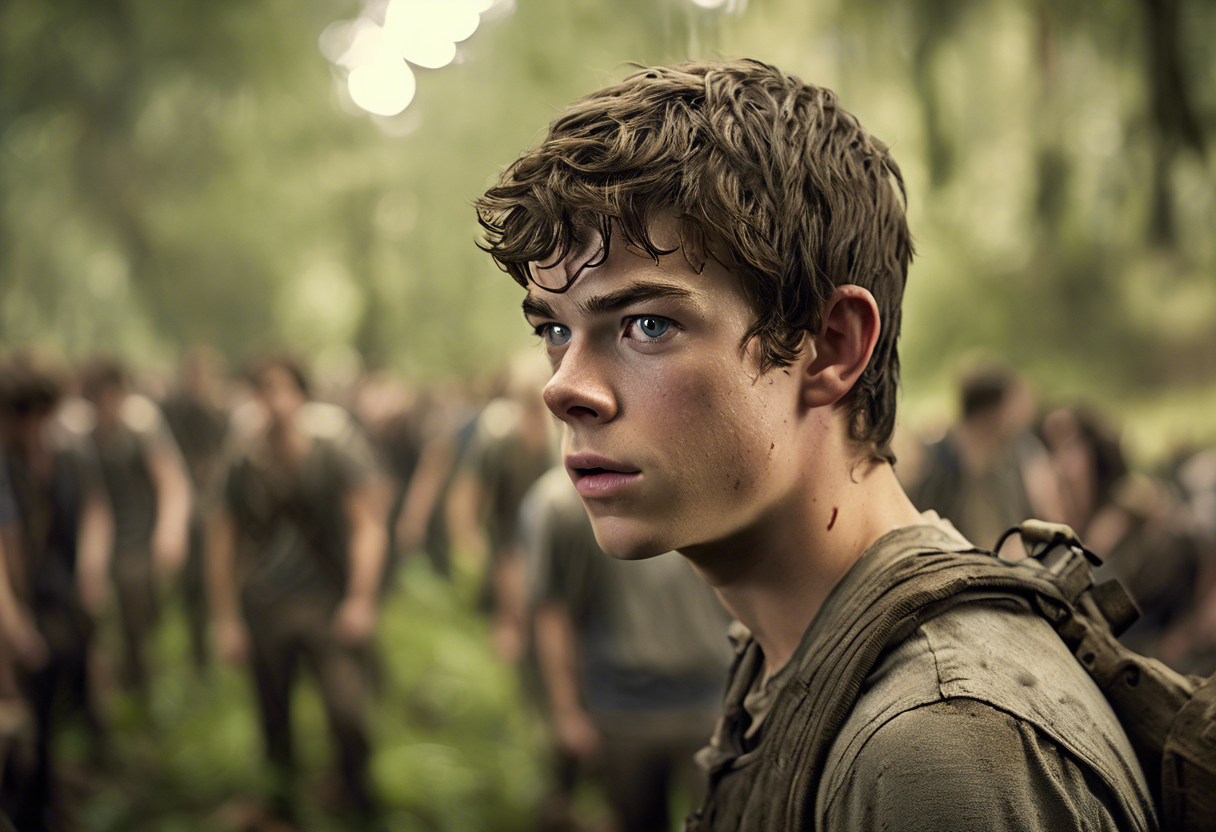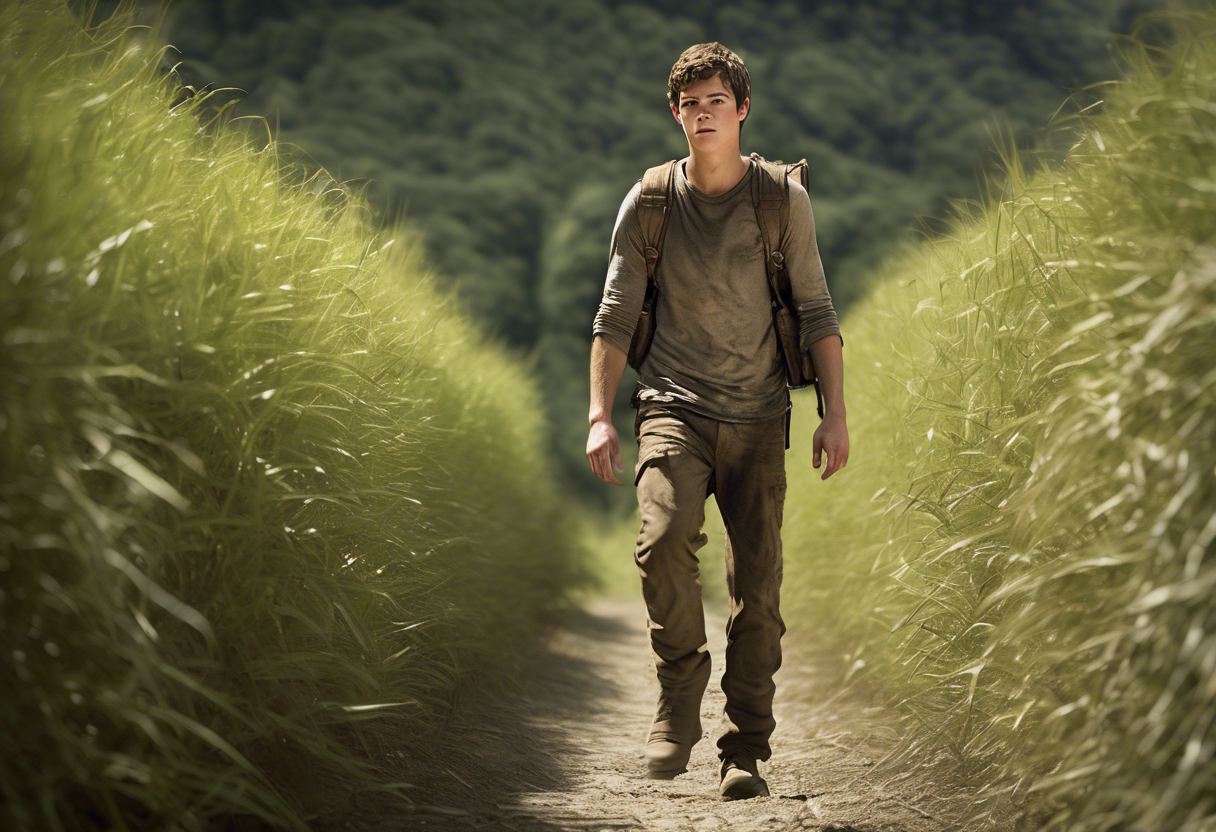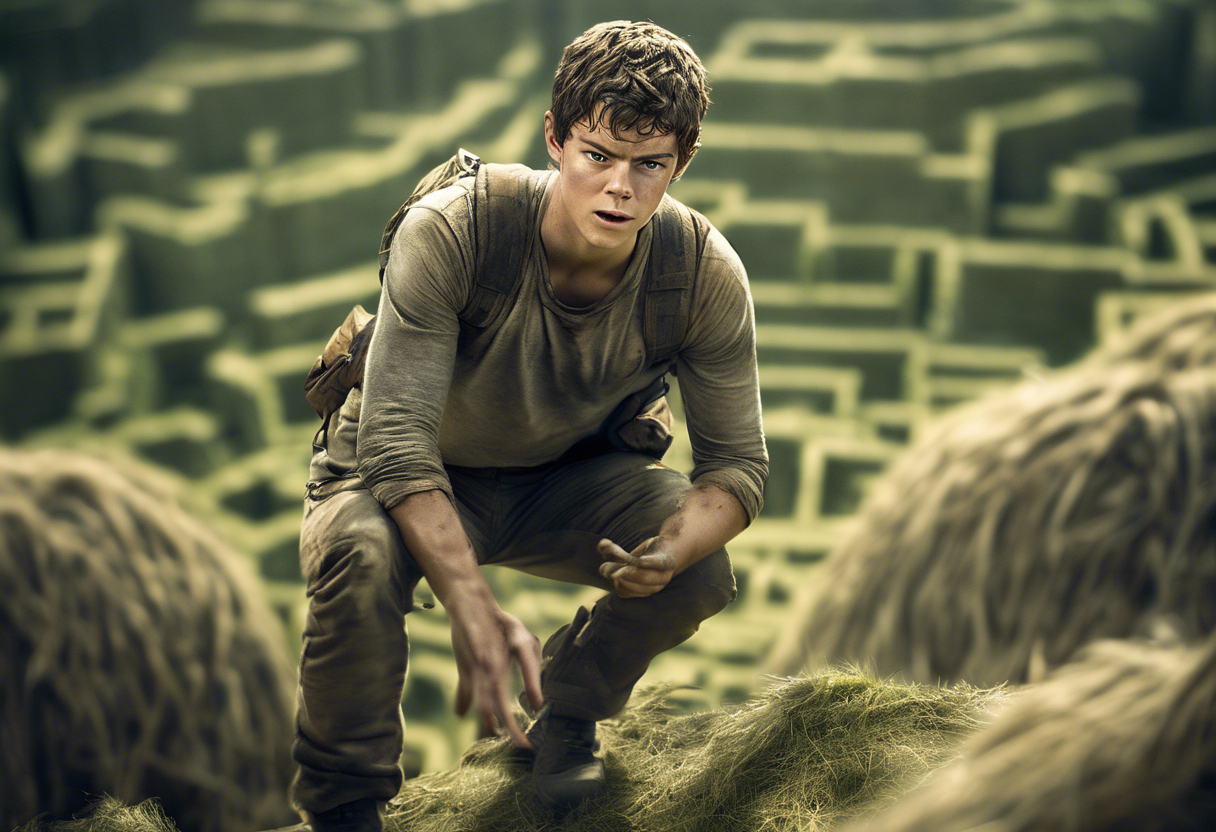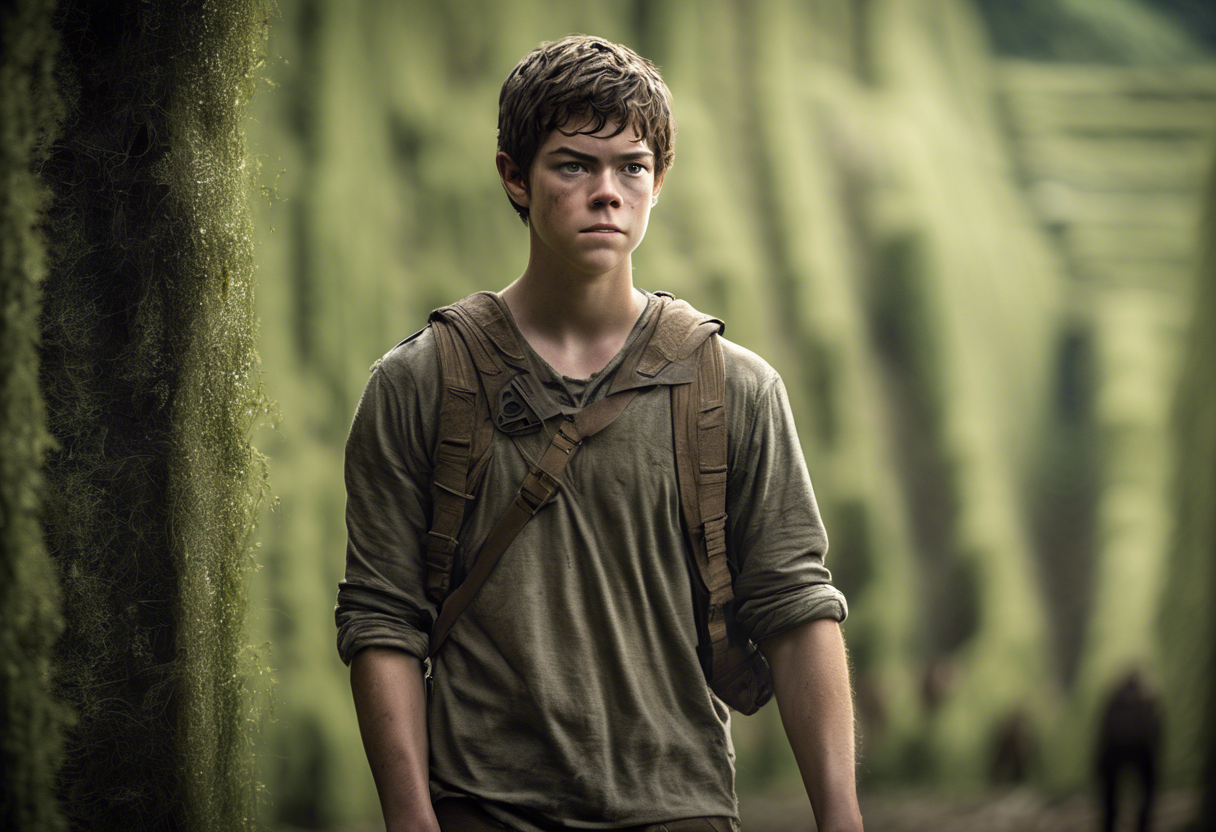Contents
Introduction
Chuck, a pivotal character in James Dashner’s novel and the subsequent movie adaptation of "The Maze Runner," is one of the youngest and most vulnerable residents of the Glade, a mysterious enclosure surrounded by a deadly maze. Created by Dashner as a symbol of innocence and hope, Chuck’s character plays a crucial role in the narrative, influencing the protagonist Thomas and the overall plot significantly.
Chuck’s backstory is shrouded in mystery, much like the other characters in the Glade. He is one of the youngest Gladers, often subjected to teasing and bullying by his peers. Despite this, Chuck is talkative, innocent, and naive, traits that make him both relatable and endearing to the audience [2][3].
Role in the Story
Chuck’s journey begins as he welcomes Thomas, the new arrival in the Glade, and takes on the role of his guide. This initial interaction sets the stage for their close friendship, with Chuck becoming a sort of younger brother figure to Thomas. Chuck explains the rules and routines of the Glade to Thomas, helping him navigate the complex social hierarchy and the dangers of the maze [1][2].
As the story unfolds, Chuck’s observational skills and bravery become crucial. He assists Thomas and the other Gladers in their attempts to escape the maze and uncover the secrets behind their confinement. One of the most significant events involving Chuck is his heroic sacrifice when he steps in front of a knife meant for Thomas, saving his life but ultimately losing his own. This act of selflessness is a turning point in the narrative, motivating Thomas to continue fighting for survival and escape [1][4].
Character Analysis
Chuck’s personality is multifaceted, despite his initial portrayal as a stereotypical "chubby, lonely kid." He is talkative and eager to please, often seeking acceptance and friendship. However, he also has a darker side, as seen in his enjoyment of pranks and his peculiar reactions to certain events, which add depth to his character [3].
Chuck’s motivations are rooted in his desire for friendship and a sense of belonging. He finds solace in his relationship with Thomas, who becomes a protector and friend. This dynamic is essential as it humanizes both characters and highlights the emotional stakes of their situation.
Despite his flaws, such as his naivety and sometimes annoying behavior, Chuck’s strengths lie in his innocence and bravery. His death serves as a poignant reminder of the sacrifices made in the pursuit of freedom and the importance of human connections in the face of adversity [1][4].
Themes and Symbolism
Chuck embodies several key themes in "The Maze Runner." He is a symbol of innocence, representing the hope and normalcy that the characters aspire to regain upon their escape. His character also highlights the theme of sacrifice, as his death underscores the high stakes and the moral dilemmas faced by the characters [4].
Moreover, Chuck represents the "normal" life that Thomas and the other Gladers dream of. His aspirations for a family, school, and simple pleasures like bacon and eggs for breakfast serve as a reminder of what they have lost and what they are fighting to regain [1][4].
Cultural Impact
Chuck’s character has had a significant impact on fans of the series. His tragic yet heroic sacrifice resonates deeply, making him one of the most memorable characters in the story. In adaptations and spin-offs, Chuck’s role remains consistent with the original narrative, emphasizing his importance to the plot and the emotional arc of the characters.
Chuck’s influence on popular culture is evident in the way his character archetype—the vulnerable yet brave and selfless individual—has been used in other works. His portrayal challenges stereotypes and adds depth to the narrative, making him a compelling and relatable character [2][3].
Critical Reception
Critics and audiences have praised Chuck’s character for his emotional impact and the depth he brings to the story. His sacrifice is often cited as one of the most poignant moments in the book and the movie, highlighting the human cost of the characters’ struggles.
However, some critics have noted that Chuck’s character can be seen as a stereotype—the chubby, lonely kid who is often left out. Despite this, his development and the emotional resonance of his actions have generally been well-received, making him a beloved and memorable character in the series [2][3].
Legacy
Chuck’s legacy in "The Maze Runner" series is enduring. His character serves as a reminder of the importance of human connections and the sacrifices made in the pursuit of freedom. His innocence and bravery make him a compelling and relatable figure, and his impact on the narrative is undeniable.
In contemporary discussions, Chuck’s character continues to be relevant, particularly in the context of themes such as sacrifice, hope, and the human condition. His influence can be seen in other works that feature similar character archetypes, underscoring the lasting impact of his creation by James Dashner.
References
- https://www.cram.com/essay/Chuck-In-The-Maze-Runner-By-James/C213053C0E4E1BBB
- https://www.gradesaver.com/the-maze-runner/study-guide/character-list
- https://www.shmoop.com/study-guides/the-maze-runner/chuck.html
- https://www.gradesaver.com/the-maze-runner/q-and-a/at-the-end-of-chapter-51-what-does-chuck-symbolize-436336
- https://en.wikipedia.org/wiki/Blade_Runner

